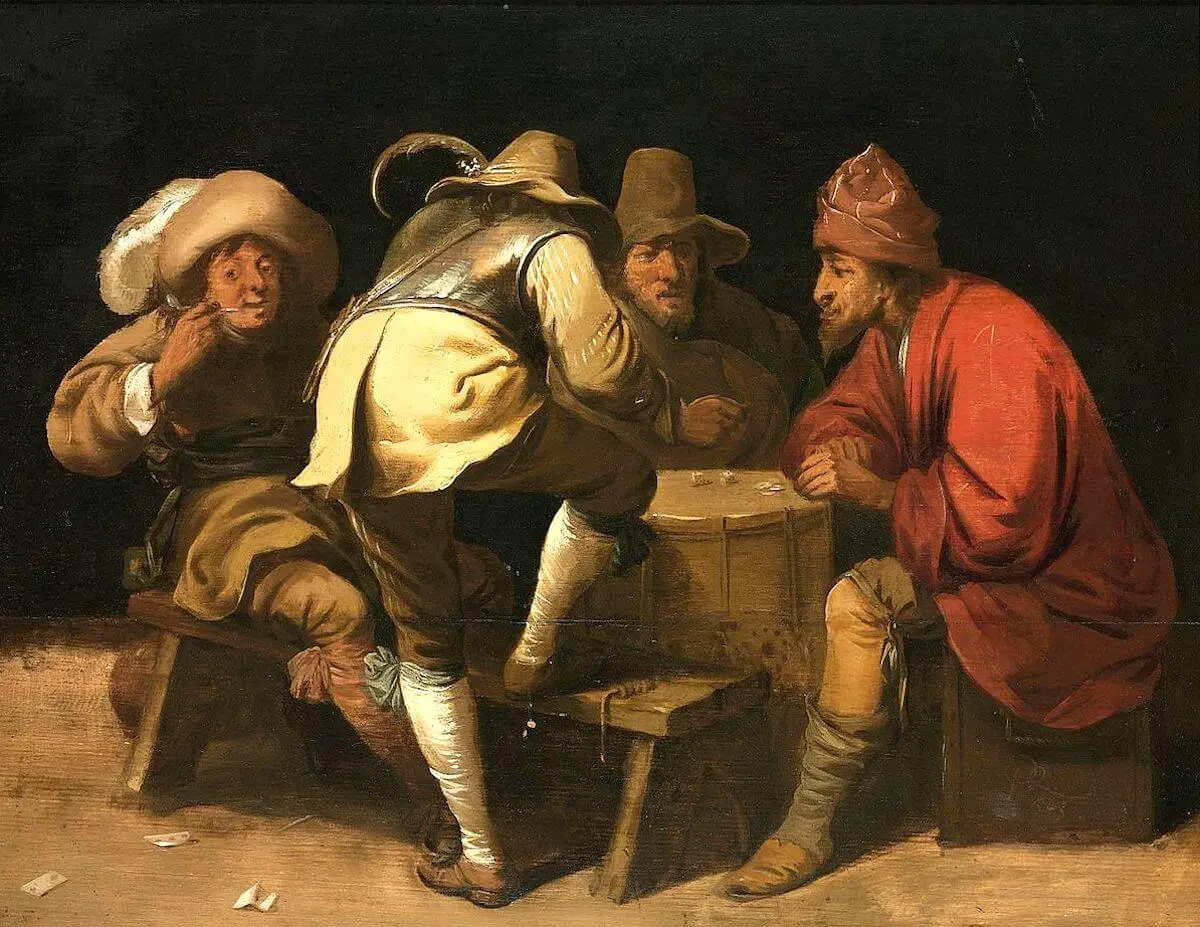High jinks is the name for boisterous fun and horseplay.
High jinks
What's the meaning of the phrase 'High jinks'?
What's the origin of the phrase 'High jinks'?
High jinks was originally the name of frolicsome drinking game played at parties. The OED states that the term originated in Scotland but gives no evidence to support that. In order to explain it I’ll stay in Scotland and, although this is far from the earliest use of the term, it does explain just what high jinks were. This piece is from Sir Walter Scott’s novel Guy Mannering, 1815:
…the pastime of High-jinks. This game was played in several different ways. Most frequently the dice were thrown by the company, and those upon whom the lot fell were obliged to assume and maintain, for a time, a certain fictitious character, or to repeat a certain number of fescennine [bawdy or scurrilous] verses in a particular order. If they departed from the characters assigned, or if their memory proved treacherous in the repetition, they incurred forfeits, which were either compounded for by swallowing an additional bumper [a glass of alcoholic drink filled to the brim], or by paying a small sum towards the reckoning.
The OED, again with no evidence, says that ‘high jinks’ was originally called ‘high pranks’.
As to the origin we find that the earliest references come from London in the 1680s. It may be that the game became fashionable then as there seem to be no references in print until 1680 and numerous others before 1690. The earliest I know of is from a bawdy poem in celebration of one Bartholomew Kempster, who was a clerk living in the English south-coast town of Southampton. The anonymous piece is titled Batt upon Batt, 1680:
Our Batt [Bartholomew] can dance, play at high Jinks with Dice,
At any primitive Orthodoxal Vice.
Shooing the wild Mare, tumbling the young Wenches,
Drinking all night, and Sleeping on the Benches.
The game is also mentioned, as Hey Jinks, in a piece called Witt against Wisdom, by the Dutch philosopher Erasmus, which was written in Latin and translated and printed in 1683:
And as to all those Shooing-horns of drunkenness, the keeping every one his man, the throwing Hey-jinks, the filling of bumpers, the drinking two in a hand, the beginning of Mistresses healths; and then the roaring out of drunken catches, the calling in a Fidler, the leading out every one his Lady to dance, and such like riotous pastimes.
Erasmus died in 1536 so, if the above is a literal translation, the game was known of and named well before 1683.
The term ‘highjinks’ was later used to refer to type of person who would habitually play at high jinks. This is listed in two dictionaries of underworld slang A New Dictionary of the Terms Ancient and Modern of the Canting Crew, 1699:
Highjinks, a Play[er] at Dice who Drinks.
Francis Grose’s 1785 edition of the Classical Dictionary of the Vulgar Tongue.
High Jinks, a gambler at dice, who, having a strong head, drinks to intoxicate his adversary, or pigeon [the 1823 edition adds: Chaps always on the look out to rob unwary country men at cards, &c.].
See other phrases recorded by Captain Francis Grose.
The history of “High jinks” in printed materials
Trend of high jinks in printed material over time
Browse more Phrases
About the Author

Phrases & Meanings
A-Z
A B C D E F G H I J K L M N O P Q R S T UV W XYZ
Categories
American Animals Australian Bible Body Colour Conflict Death Devil Dogs Emotions Euphemism Family Fashion Food French Horses ‘Jack’ Luck Money Military Music Names Nature Nautical Numbers Politics Religion Shakespeare Stupidity Entertainment Weather Women Work
How did we do?
Have you spotted something that needs updated on this page? We review all feedback we receive to ensure that we provide the most accurate and up to date information on phrases.
